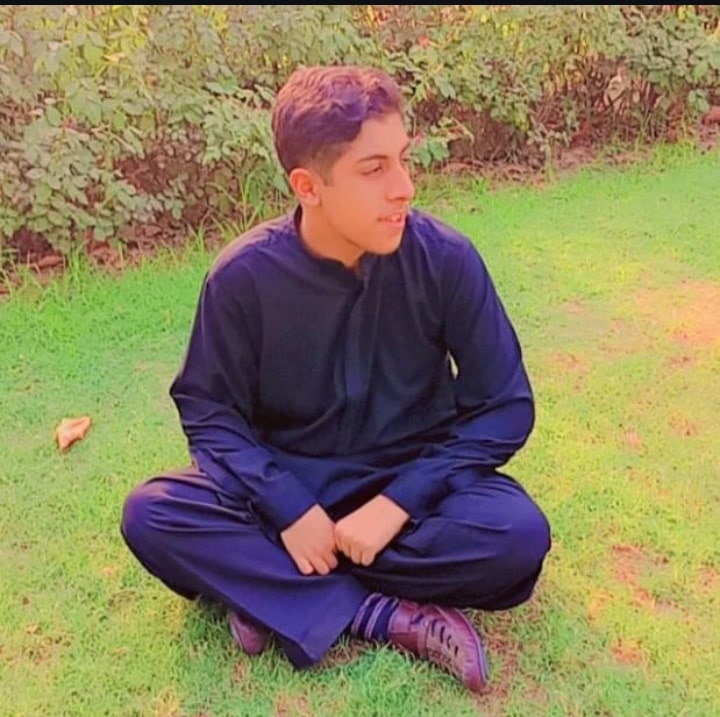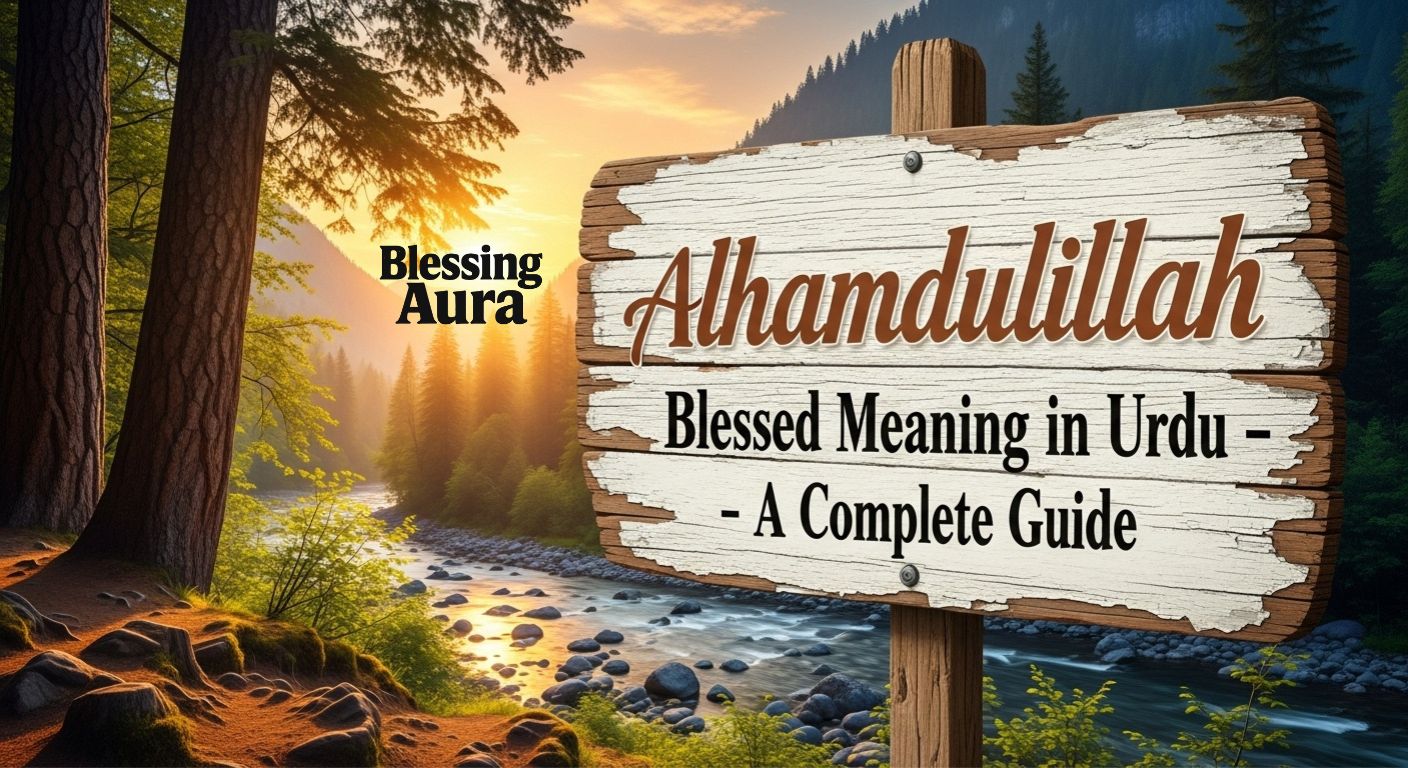Understanding the Alhamdulillah Blessed Meaning in Urdu is not only about language. It is about faith, gratitude, and a way of expressing thanks to Allah in every moment. For many Muslims in the USA, this phrase bridges culture, religion, and emotion in a beautiful way.
When you say “Alhamdulillah Blessed“, you are combining Arabic and English to convey a deeper spiritual message. In Urdu, this phrase is expressed as الحمدللہ مبارک or “Alhamdulillah Mubarak”. This combination shows both the praise of Allah and the blessing associated with it.
Alhamdulillah Blessed Meaning in Urdu
The Urdu meaning of Alhamdulillah is الحمدللہ مبارک, which directly translates to “Alhamdulillah Mubarak”. The first part, Alhamdulillah, means “All praise is due to Allah.” The second part, Blessed, adds the feeling of being favored or gifted by Allah. Together, it expresses gratitude for a blessing in life.
In Urdu-speaking Muslim families in the USA, the meaning of Alhamdulillah Blessed goes beyond words. It is used in conversations, prayers, and even casual greetings to acknowledge that everything good comes from Allah. This makes it more than just an English to Urdu translation of Alhamdulillah Blessed—it is an expression of faith.
Historical Origin of the Phrase in Islamic Culture
The Alhamdulillah word origin is Arabic, from the Qur’anic phrase Al-Hamdu Lillah. Over centuries, Muslims across the world adopted it into their languages, including Urdu. When Urdu speakers add “Blessed,” it is often to connect Islamic gratitude with English-speaking audiences, especially in multicultural societies like the USA.
“Alhamdulillah Blessed” – English to Urdu Translation
In English to Urdu meaning of Blessed, the word “Blessed” translates to “Mubarak.” Therefore, “Alhamdulillah Blessed” becomes “Alhamdulillah Mubarak” in Urdu. The pronunciation for non-Urdu speakers is Al-ham-du-lil-lah Mu-ba-rak. This helps USA-based Muslims share the phrase with both native English and Urdu speakers.
The Urdu translation of blessed is common in Islamic greetings. For example, “Blessed Friday” in Urdu is “Jumma Mubarak.” This makes “Alhamdulillah Blessed” a natural fusion of cultural and religious expression.
Pronunciation Tips for Non-Urdu Speakers in the USA
To pronounce “Alhamdulillah Blessed” correctly, break it into syllables: Al-ham-du-lil-lah (pause) Blessed. Make sure the ‘h’ in Hamdu is soft. This makes your speech more authentic and respectful when using Islamic gratitude phrases in interfaith gatherings.
Definition of Alhamdulillah Blessed in Islamic Context
In Islam, Alhamdulillah definition in Urdu reflects a universal truth: every blessing is from Allah. This phrase is often said after receiving good news, overcoming difficulties, or simply waking up in the morning. It is part of a Muslim’s spiritual routine.
The spiritual meaning of Alhamdulillah reminds believers that gratitude is an act of worship. It shifts focus from what is missing to what has been given, strengthening trust in Allah’s plan.
Role of the Phrase in Islamic Worship and Prayer
Muslims say Alhamdulillah Blessed during prayers, especially in the opening chapter of the Qur’an, Surah Al-Fatiha. The phrase links worshippers to the words of the Prophet Muhammad ﷺ, who encouraged thankfulness in every situation.
Spiritual and Emotional Significance of Saying Alhamdulillah
The act of saying “Alhamdulillah Blessed” is both emotional and spiritual. It allows a believer to pause and appreciate Allah’s mercy, even in small moments. For Muslims in the USA, it is a reminder of their roots and their connection to the global ummah.
Studies in positive psychology show that gratitude improves mental health. Saying Alhamdulillah translation regularly can create a sense of peace and contentment, much like meditation or mindfulness practices.
How Gratitude Shapes Muslim Mental Well-being
Consistently using Islamic gratitude phrases like “Alhamdulillah Mubarak” helps reduce stress and anxiety. It trains the mind to focus on blessings instead of problems, leading to a healthier emotional state.
Usage of “Alhamdulillah Blessed” in Daily Life Conversations
In Urdu-speaking Muslim homes in the USA, usage of Alhamdulillah in daily life is constant. A mother may say it when her child returns home safely. Friends may say it when a task is completed successfully. It is part of daily conversation phrases in Urdu that show faith.
This phrase is not limited to good news. Even in challenges, believers say “Alhamdulillah Blessed” to show patience and acceptance of Allah’s will.
Etiquette of Using Religious Phrases in Multicultural Settings
When using synonyms of Alhamdulillah Blessed in diverse environments, it is important to explain its meaning for non-Muslims. This builds understanding and respect for Islamic expressions.
Quranic References Related to Alhamdulillah
The Qur’an mentions Alhamdulillah translation multiple times. One key verse is in Surah Al-Fatiha: “All praise is due to Allah, the Lord of the worlds.” Another is Surah Al-An’am, where believers are reminded to be thankful in all circumstances.
The table below shows some Qur’anic references:
| Surah | Ayah | Meaning |
| Al-Fatiha | 1 | Praise to Allah, Lord of worlds |
| Al-Kahf | 1 | Allah revealed the perfect Book |
| Saba | 13 | Few of My servants are grateful |
Lessons from the Quran on Constant Gratitude
These verses show that gratitude is central in Islam. Saying “Alhamdulillah Blessed” aligns with the Qur’anic command to always praise Allah.
Hadiths About Gratitude and Saying Alhamdulillah
The Prophet Muhammad ﷺ said, “The one who does not thank people has not thanked Allah.” This shows that gratitude in speech, including similar words for Alhamdulillah Blessed, is part of faith.
Another hadith says that Allah loves the believer who praises Him after eating or drinking. This is why Alhamdulillah Blessed is often said after meals.
How Hadith Encourages Incorporating Gratitude in Speech
The hadith literature confirms that even small acts of gratitude are rewarded. Repeating “Alhamdulillah Mubarak” can be an act of worship.
Difference Between “Alhamdulillah” and “Alhamdulillah Blessed”
The difference is in emphasis. Alhamdulillah means all praise to Allah. “Alhamdulillah Blessed” adds the acknowledgment of a specific blessing. This makes it more descriptive for English speakers.
In the USA, Muslims often add “Blessed” to connect with non-Urdu speakers and make the phrase more relatable.
Western Influence on Traditional Islamic Phrases
Adding “Blessed” is influenced by English-speaking Islamic communities. It blends traditional Arabic with English, making the English to Urdu translation of Alhamdulillah Blessed more dynamic.
Common Misinterpretations in Urdu and Their Clarification
Some think “Alhamdulillah Blessed” is only for happy moments. In reality, it is also for patience during trials. This misunderstanding comes from focusing only on the word “Blessed” and forgetting the full Islamic context.
Others misinterpret similar words for Alhamdulillah Blessed as casual phrases. In truth, they carry deep religious meaning.
Avoiding Literal Misuse of Spiritual Expressions
Be mindful when using English to Urdu meaning of Blessed in religious speech. Always remember that it is a form of worship, not just decoration for conversation.
Inspirational Quotes and Examples Using “Alhamdulillah Blessed”
“When you say Alhamdulillah, you close the door on complaints and open the door to peace.” This is one example of a powerful quote using the phrase. Many social media posts in the USA share daily conversation phrases in Urdu with English subtitles for wider reach.
Modern examples include Instagram captions after life milestones: “Graduated today, Alhamdulillah Blessed.” This blends personal joy with public gratitude.
Modern-Day Social Media Examples of the Phrase
From TikTok to Facebook, Muslims in the USA use “Alhamdulillah Blessed” to show thankfulness for everything from new jobs to safe travels.
FAQ’s
What does Alhamdulillah Blessed Meaning in Urdu convey spiritually
Alhamdulillah Blessed Meaning in Urdu conveys deep gratitude to Allah for His mercy and blessings. It reminds believers to acknowledge and thank Allah in every situation with sincerity.
How is Alhamdulillah Blessed Meaning in Urdu connected to faith
Alhamdulillah Blessed Meaning in Urdu is tied to Islamic belief that all good comes from Allah. Saying it reflects strong faith and acceptance of Allah’s divine plan.
Why do Muslims value Alhamdulillah Blessed Meaning in Urdu in prayers
Alhamdulillah Blessed Meaning in Urdu is valued in prayers as it praises Allah before asking for anything. It sets a tone of thankfulness and humility during worship.
What does Alhamdulillah Blessed Meaning in Urdu teach about gratitude
Alhamdulillah Blessed Meaning in Urdu teaches Muslims to thank Allah in all circumstances. It shifts focus from challenges to blessings, creating a mindset of contentment and peace.
How is Alhamdulillah Blessed Meaning in Urdu expressed in Urdu language
Alhamdulillah Blessed Meaning in Urdu is expressed as الحمدللہ مبارک or Alhamdulillah Mubarak. This translation combines Arabic praise with Urdu blessings, blending spiritual meaning with cultural expression.
Conclusion
The Alhamdulillah Blessed Meaning in Urdu is more than a translation. It is a way to thank Allah for His gifts. It reminds us that every blessing comes from Him. The Alhamdulillah Blessed Meaning in Urdu connects our hearts to gratitude. It is simple yet powerful. It is used to show faith in Allah’s mercy. It tells us to stay thankful in all moments. The Alhamdulillah Blessed Meaning in Urdu inspires peace and contentment.
The Alhamdulillah Blessed Meaning in Urdu also builds a bond with faith. It blends Arabic praise with Urdu culture. It teaches a life of thankfulness. The Alhamdulillah Blessed Meaning in Urdu makes us remember Allah daily. It can be said anytime. It helps us see blessings in all things. The Alhamdulillah Blessed Meaning in Urdu will always be a phrase of love, thanks, and worship.

Welcome to Blessing Aura! I’m Muhammad Anas, an Digital Marketer and Ebay Dropshipping Expert with 1 year of experience, I help business, brands and store to grow online. My goal is to run ads and sell effective products for everyone, Let’s achieve more together!

